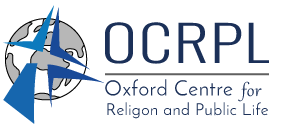
The challenge to the church’s survival in the post-colonial era lies in a ‘meaningful’ theological engagement with the fields of economics, politics and issues of security, according to a leading mission expert, addressing PhD students in a ground-breaking doctoral programme for church leaders in the non-western churches of Africa, Asia, the Middle East and Caribbean.
In a keynote address by video link, Dr Patrick Sookhdeo, told doctoral students that in the colonial era an engagement with these areas had been seen as the preserve of the ‘colonial powers’, yet in some societies the challenges to the church’s survival lies in such study. He called for the new programme to prioritise research into controversial topics that were beyond the scope of secular university departments and Christian seminaries.
A ground-breaking initiative in developing church leaders for the future in Africa, Asia, the Middle East, and the Caribbean, particularly those facing the challenges of poverty and aggressive religious cultures began in Stellenbosch, South Africa this week. In a partnership between the Faculty of Theology of Stellenbosch University, the Oxford Centre for Religion and Public Life, Barnabas Fund and East Mountain Missional Community, fifteen Christian leaders, including bishops, lecturers, and pastors from nine countries gathered for a three and a half week seminar to prepare them for four years of doctoral research, undertaken primarily in their own countries.
In a keynote address by video link, Dr Patrick Sookhdeo, a director of the programme, spoke of the new opportunities this programme would give for research into controversial topics that were beyond the scope of secular university departments and Christian seminaries. In the colonial era many churches had been excluded from engaging meaningfully with the fields of economics, politics and issues of security which were the preserve of the colonial powers. Yet in some societies many current challenges to the church’s survival lie in such fields.
Dr Vinay Samuel, director of the Oxford Centre for Religion and Public Life, speaking by video link from India emphasised the particular contribution such research would make to the global church in addressing the moral, political, cultural and social crises of the day. Rooted in the commitments which are common to all Christians, to revealed truth and the normative role of the Bible as God’s word to humanity, the researchers should develop confidence in the theological contributions from their own situations and question claims of western theology, which sometimes spoke of their theologies as “ethnic”, to be the universal theology. Because Christian faith includes repentance, it can be self-critical and free of ideological straightjackets in ways that other religions and beliefs find difficult.
The dean of the Faculty of Theology at Stellenbosch, Professor Hendrik Bosman declared that there was ample space for them to make original contributions in societies that were fatigued with bad news, and where global media were selective in focusing on ten deaths from floods in Texas while practically ignoring hundreds of deaths from landslides and floods in poor countries. They should be neither mirrors to their own views, nor a window on long dead realities, but give access to the Bible as an alternative reality to what is presented every day in societies that are numb to the pain and suffering of disadvantaged people.
The seminar programme will include a week in Stellenbosch University and its extensive library resources, and seminars where participants present the first drafts of their research proposals in areas such as church state relations, addressing teenage suicide, the understanding of justice in liberation movements, and developing biblical understandings of work. The dean of research from an African university commented that he would be incorporating the face-to-face process of the introductory seminar in his own preparation of new research students.


